Opinion
AS ATIKU FILLS IN FOR A MALFUNCTIONAL OPPOSITION
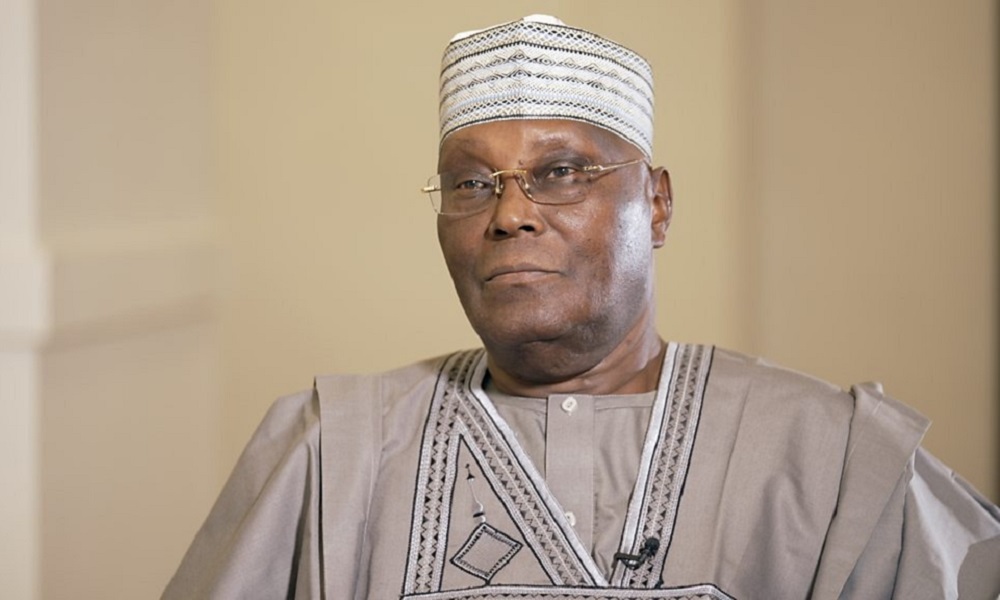
*By Tunde Olusunle*
Doubts aside, the Peoples’ Democratic Party, (PDP), is yet to recover from its loss to the All Progressives Congress, (APC), at the 2015 polls. The PDP lost the presidency and also had its numerical strength shrunken in government houses, national parliament and state assemblies across the nation. For a party which was on a smooth sail during the first 16 years of the Fourth Republic, operating from the trenches of opposition was a tough job. Olisa Metuh the ebullient attorney who had held several important positions within the hierarchies of the PDP gave a voice to the party in its earlier months until he was arrested by the APC government. Kola Ologbondiyan stretched the frontiers of opposition spokesmanship within the limits of his capabilities when he took over Metuh’s brief late 2017, until the end of his tenure of office. Ologbondiyan’s successor, Debo Ologunagba a barrister like Metuh, however, has not as yet approximated the noise decibels of some of his predecessors.
Ologunagba may, to some extent, be excused though. There are suggestions to the effect that some of his colleagues in the National Working Committee, (NWC) treat Ologunagba as an “outsider” to the establishment. Fiscal support for the running of the bureaucracy, engagements and activities of the PDP are said to be slow in coming from governors elected on the platform of the party. Extant practice was for governors elected on the platform of the party to pool resources for the sustenance of the entity. It is not unlikely, however, that the grabbist proclivity of previous leaderships of the party, the festering opacity and lack of accountability might have dissuaded PDP governors from aggregating resources for the upkeep of the party. Who would have imagined that PDP would be in prostrate penury today with the billions of naira realised from the sale of nomination forms ahead of the 2023 general elections? There were indeed expectations to the effect that the strategically located, purpose-built secretariat in the heart of the Abuja would be completed and occupied by the party’s officials.
The onus lies on Bala Mohammed of Bauchi State and his colleague Siminalayi Fubara of Rivers, chair and co-chair of the PDP governors forum to rally their colleagues to mitigate the party’s descent into the abyss. Why won’t they sacrifice a fraction of their humongous “security votes” to ensure uninterrupted oxygen supply to the platform which catapulted them to their present pedestals? A political party with 13 sitting governors should not be a pushover. What was the spread of the political parties which coalesced to birth APC in 2013? The recent interactions between Nasir El Rufai, immediate past governor of Kaduna State; the presidential candidate of the Labour Party, (LP) Peter Obi and the Social Democratic Party, (SDP), must also be deeply concerning for the PDP. The Labour Party has been engulfed in a hydra of leadership combustion and indeed ownership even as the courts recently reassigned the ownership of the party to the Nigerian Labour Congress, (NLC). It will be shameful and catastrophic if PDP finds itself clutching at the straws behind yet another possibly brewing “coalition.”
Atiku Abubakar, Nigeria’s former Vice President is ever mindful of the adage to the effect that “a woman cannot deliver her pregnancy in tethers in the marketplace when an elder is present.” This, more than a proclivity to bring down the establishment, propels his activism and vocal audibility in the public domain. Robbed time and again of his evident electoral triumphs, he has refused to give up on his birthplace. Even in his 70s, he took time off to study for a masters degree at the prestigious Anglia Ruskin University in the United Kingdom in his eternal quest for self-development and indeed redevelopment. It would seem that the Olusegun Obasanjo/Atiku Abubakar combination are irrepressible knowledge questers. Obasanjo also returned to school, the National Open University of Nigeria, (NOUN), where he studied biblical theology, going all the way to earning a doctorate!
Sadly, the good works of the Obasanjo/Atiku tag team which represents the most glorious times of Nigeria’s all-round boisterousness, was painfully reversed less than a decade after they exited office. Nigeria’s immediate past President, Muhammadu Buhari could not as much as present a West African Examination Council, (WAEC) ordinary school leaving certificate all through his eight years in office. The whole world acknowledges Nigeria as a nation abundantly blessed with multidimensional competence and intellectual capital. Many Nigerian technocrats are holding their own in the global arena. Curiously, Nigeria is also one country where a first rate academic, a professor of law who is also Senior Advocate of Nigeria, (SAN) to wit, was subjugated under a President without basic credentials!
Atiku desires to keep apace with contemporary dimensions in world politics and economy to help him build informed perspectives on a wide spectrum of issues. He believes this country has the wherewithal to reinvent itself for the benefit and convenience of all and sundry. He is pained by the slurs, the avoidable failings, flailings, foibles which has characterised statecraft, particularly in the last decade. “Change” was the horseback on which Buhari rode into office in 2015. His two terms of four years each in office, however, principally impacted retrogression to pristine eras on Nigerians. Bola Tinubu whose chant was *emi lokan,* (it is my turn), and “renewed hope” has brought famine, hunger, inflation, heightened insecurity to the land. Only the mute at birth will not speak to these realities even in the closets of their homes.
There has been a tendency towards the deification of the archetypal Nigerian president a trend which was accentuated during the Buhari years. Don’t we recall that photograph of the immediate past Deputy President of the Senate, Ovie Omo-Agege kneeling to shake hands with Buhari the day he, Omo-Agege was inaugurated? Shockingly, serving opposition governors individually and collectively credited President Bola Tinubu for their victories in the Supreme Court. The belief is that Nigeria’s imperious presidency holds the power of life and death literally. Mohammed Umaru Bago of Niger State scurried to Abuja within hours of concurring with Peter Obi’s criticism of Nigeria’s receipt of grains from war-torn Ukraine. Black-bearded Bago was pictured grovelling on the Persian rug on the floor of president’s office as he sought parole for his “slip of tongue,” identifying with Peter Obi’s clear-headed position. The systematic reconstruction of the persona of the president into a virtual monarch is being consummated under Tinubu.
It is preposterous the fact that public officers at that level who were supposedly elected by their constituents cannot take a position different from that of the *Oga at the top.* The parliament too continues to squirm and grovel before the all-powerful president, raising parliamentary servitude to legendary heights. It is the kind of acquiescence which gradually throws up emperors and despots. To the understandable discomfort of the incumbent administration, however, Atiku has beaten a distinctive part. He has followed the government “bumper to bumper,” to approximate the lyrics of a song of the same title sang by *Wande Coal* one of Nigeria’s popular artists every step of the way. He’s ever pointing out the government’s drawbacks.
Atiku has unfailingly highlighted missteps of the incumbent government as they perilously impact the citizenry. Last August for instance, Atiku queried the blurry $3.3Billion emergency crude repayment loan facilitated by the African Export-Import Bank for the Nigerian National Petroleum Company Ltd, (NNPCL). The money was reportedly procured to support the naira and stabilise the foreign exchange market. Atiku sought full disclosure of the terms and conditions of the deal. The former Vice President has also lashed the Tinubu system of embarrassing Nigeria at every opportunity on the global podium no thanks to its profligacy especially with regards to Nigeria’s wasteful “over-representation” at global events.
Atiku has also criticised Tinubu’s spontaneous policies as bereft of critical reasoning, causing sadistic pain, anger and despair to the people. He alluded to the impulsive removal of fuel subsidy on Tinubu’s inauguration, a proposal which was not captured in his prepared inaugural address. Atiku noted that such policies have fuelled skyrocketing inflation creating more misery for the generality of the people. Inflation has since pole-vaulted past the 30 percent mark, casting a palpable pall on the visage of the nation. Atiku chided Tinubu and his aides for squeaking and shrieking about the comatose economy inherited from the preceding administration. Atiku noted that since Tinubu like Buhari are of the same politica party, they inevitably carry the same “DNA!” For Atiku, Tinubu’s perpetual whining is evidence that APC lacks the wherewithal to redeem Nigeria. According to Atiku: “Tinubu came into office unprepared and his men have found a pastime blaming the economic woes of the country on previous governments. Tinubu and his economic team must swallow their pride, admit their false steps and failures and follow those who understand the issues.”
More contempraneously, Atiku has bemoaned the accentuation of killings and bloodletting under Tinubu. Nigeria he noted “has become a killing field” under the present government. Atiku referenced the recent murder of villagers in Rafi local government area of Niger State by suspected bandits who invaded the community and left a trail of blood. The sadists levelled 21 unsuspecting country folks in that incident. In less than 10 days, over 30 soldiers and policemen have been killed in Delta State alone by suspected riverine militants. Atiku railed at the complacency of the Tinubu system under whose watch the Nigerian narrative has become “one day, one calamity.” Computations by the media indicate that within the first 10 months of Tinubu’s superintendence, 7000 people have been killed. This averages at 700 Nigerian casualties every month. Atiku has been vindicated by the concurrence of senators from the 19 northern states about the disturbing wave of kidnappings and killings in the north. They want a decisive termination of the trend.
As Nigeria slides blindfolded into a one-party state, no thanks to the enormous powers of a chief executive operating the suspect and serially criticised 1999 Constitution, Atiku continues to point the way to the imperative of multi-partyism. It will almost amount to centuries lost for our nation and our people if our own brand of democracy as experimented over the last quarter of a century only breeds “civilian despotism” at the end of the day. *Lagbaja* the masked and famous Afrobeat artist reminds us in one of his classics, that “even the crab despite the hardness of its shell always keeps its eyes open in readiness for the adversary.” This is the attitude Atiku exhorts we collectively adopt and not misconstrue democracy and politics as the business of those who desire public office. That is where real danger lies.
*Tunde Olusunle, PhD, is a Fellow of the Association of Nigerian Authors, (FANA)*
Opinion
5G,IoT and AI to boost global GDP by 2030

By Sonny Aragba-Akpore
With Mobile technologies and services now generating around 5.8% of global Gross Domestic Product (GDP) a contribution that amounts to about $6.5 trillion of economic value, there are strong projections that by 2030, this figure will rise to almost $11 trillion, or 8.4% of GDP.
Global System of Mobile Communications Association (GSMA) says much of this will be driven by countries around the world increasingly benefiting from the improvements in productivity and efficiency brought about by the increased take-up of mobile services and digital technologies, including 5G, Internet of Things (IoT) and Artificial Intelligence (AI).
The GSMA recently introduced the 5G Connectivity Index to provide insights into 5G performance in 39 markets in order to encourage informed decision-making.
In terms of Economic Impact,
the GSMA emphasizes the economic benefits of mobile technologies and services, including 5G, projecting that they will contribute significantly to GDP growth by 2030.
“The GSMA provides specific reports and analyses on 5G in different regions, such as Sub-Saharan Africa, Asia ,Middle East among others highlighting the progress and challenges of 5G deployment in specific areas.”
In Sub Saharan Africa for instance with particular attention on Nigeria,South Africa,Egypt,Kenya and Botswana among others some measure of progress in deployment has been recorded.
The rollout of 5G has brought immense benefits across multiple industry sectors, particularly those involving internet of things (IoT) and artificial intelligence (AI) applications in which the real-time transfer of data is crucial.
More broadly, the adoption of 5G is expected to accompany increased data use across the globe, with forecasts anticipating mobile data traffic of over 300 exabytes per month by 2030, more than twice the volume consumed in 2024 according to Statista.
And with a third of global population expected to be covered by this fifth generation (5G) networks ,a technology that has defined new ways of communication by 2025 ,GSMA
says the technology has surpassed growth projections of all times.
“5G subscriptions increased by 163 million during the third quarter 2024 to total 2.1 billion. 5G subscriptions reached close to 2.3 billion by the end of 2024 accounting for more than 25 percent of all global mobile subscriptions.
“4G subscriptions continue to decline as subscribers migrate to 5G” according to GSMA.
As of the first quarter of 2024, there were nearly two billion 5G connections worldwide, with 185 million new additions. This is expected to grow to 7.7 billion by 2028.”
Statistics show that 5G is the fastest-growing mobile broadband technology, reaching 1.5 billion connections by the end of 2023.
It only took four years to reach this number, compared to 10 years for 3G and more than five years for 4G.
“5G is more than a new generation of technologies; it denotes a new era in which connectivity will become increasingly fluid and flexible.5G Networks will adapt to applications and performance will be tailored precisely to the needs of the user” GSMA submits.
By covering one-third of the world’s population , impact on the mobile industry and its customers will be profound according to GSMA.
To deepen the spread of 5G ,GSMA is working closely with the mobile operators pioneering 5G, “by engaging with governments, vertical industries including automotive, financial services, healthcare providers, transport operators, utilities and other industry sectors to develop business cases for 5G.”
And In order to accelerate the growth and spread, many operators are said to be deploying
AI technology as part of an integral part of telecoms operators’ strategic and operational plans.
“Operators are making important advancements in the deployment of AI technology, which is serving as a transformative force shaping the telecoms industry. By deploying autonomous AI-based systems, operators can enhance operational efficiency, customer satisfaction and security, while also creating new revenue opportunities”.
China, South Korea, the United Kingdom, Germany, and the United States are the leading countries with robust 5G coverage in the world.
Since the first commercial launches of the fifth generation of mobile networks in late 2018, these five countries have emerged as leaders because multiple companies in these countries have deployed networks and are selling compatible devices. Countries including Switzerland and Finland are up and comers in 5G development, though they have limited deployment.
In China there are three Companies leading in deployment.
The world’s largest 5G network was launched by the three largest Chinese network operators Oct 31, 2019, according to the state-run news agency Xinhua. These are China Mobile, China Unicom, and China Telecom which all activated their networks in less than five months after they were issued 5G licenses.
Each of the network operators offered their 5G services at $18 per month in 50 Chinese cities at the beginning of the launch.
GSMA expects 36% of China’s mobile users to be using 5G by 2025. That’s about 600 million subscribers, who would also make up 40% of the entire global 5G market by this year.
This is all despite efforts made by the United States government to hamper the progress of Chinese vendors, though those efforts may affect how Chinese companies may expand into the global market.
In South Korea,SK Telecom and Korea Telecom run as the main competitors for the South Korean 5G market.
SK Telecom acquired spectrum in the 3.5 GHz and 28 GHz frequencies to prepare for deploying 5G.
In April of 2019, the Enterprise claimed to be the first mobile carrier in the world to launch 5G services to work on 5G smartphones. SK Telecom asserted an edge over rival Verizon, as the former launched 5G services available at the same time as Samsung Galaxy S10 5G smartphone launched in South Korea. Verizon launched mobile 5G services in the U.S. before a 5G enabled smartphone was available to U.S. consumers.
SK Telecom also conducted tests with a 5G Standalone (SA) Core (a core not reliant on the 4G network) for their 5G network in cooperation with Samsung Electronics.
The world’s largest 5G network was launched by the three largest Chinese network operators Oct 31, 2019, according to the state-run news agency Xinhua. These are China Mobile, China Unicom, and China Telecom which all activated their networks in less than five months after they were issued 5G licenses. Each of the network operators offered their 5G services at $18 per month in 50 Chinese cities at the beginning of the launch.
“What we are seeing is a concerted effort by the Chinese — the operators, vendors, and government regulators — to deploy 5G as quickly as possible,” Chris Nicoll, principal analyst at ACG Research, pointed this out in a November 1, 2019 SDxCentral article.
With all of these players working together, the three network operators had collectively deployed nearly 86,000 5G base stations peaked over 130,000 by the end of 2019. The latter number breaks down into China Unicom and China telecom, with each planning to install 40,000 base stations, and the market leader China Mobile to install 50,000.This was the projection by 2019 but they have since overshot this by the beginning of 2024.
The International Telecommunication Union (ITU), says 5G coverage reached 40% of the world’s population in 2023 with an uneven coverage and distribution with developed countries having more coverage than low-income countries:
In Europe ,68% of the population is covered and
Americas had 59% of the population covered while
Asia-Pacific has 42% of the population covered as at 2023.
Arab States have 12% of the population covered.
Commonwealth Independent of States (CIS) had 8% of the population covered.
ITU figures show Africa,s coverage rose to 10 % of the population by 2023 .
The ITU also notes that 90% of the world’s population is covered by 4G, but 55% of people without access to 4G live in low-income countries because In low-income countries, 3G is often the only technology available to connect to the Internet.
The ITU develops and adopts international regulations and global standards to enable the harmonization and implementation of broadband mobile networks.
In Africa, around a dozen nations have launched services including Botswana, Kenya, Mauritius, Madagascar, Nigeria, Seychelles, South Africa, Tanzania, Togo, Zimbabwe, and Zambia but Africa is a patchwork of 54 countries.
And penetration is predicted to be slow.
By 2027, Ericsson predicts that 80 percent of phone users in Europe will have 5G service.
At the same time, 5G subscriptions in Africa, home to 1.4 billion people, May stagnate at a little over 10 percent. Why will so few people in Africa get access to 5G services?
China, South Korea, the United Kingdom, Germany, and the United States remain the leading countries with robust 5G coverage in the world.
While many countries are already providing robust services,Africa remains on the outskirts of 5G services.
The countries in Africa that have launched 5G networks, include South Africa with its roll out
In March 2022, when the Independent Communications Authority of South Africa (ICASA) sold spectrum across several bands.
In Nigeria,MTN rolled out commercial 5G services in Lagos in 2022, with other roll out in Abuja, Port Harcourt, Ibadan, Kano, Owerri, and Maiduguri among others.
MTN Congo announced that it was the first country in Central Africa to deploy 5G.
In Botswana Orange deployed 5G technology to provide new services in the Gaborone and Francistown regions.
Other countries in Africa that have launched 5G Fixed Wireless Access (FWA) services include: Angola, Kenya, Zambia, and Zimbabwe.
Analysts say “5G’s potential is growing due to its ability to deliver fiber-like speeds. However, there are still challenges in the region, such as:
Urban areas are reaching their maximum capacity whereas a large portion of the population lives in rural areas.
This explains why 5G adoption in the sub-Saharan region is currently below six percent “
Analysts report that 5G deployment in Africa faces many challenges, including Spectrum assignment,regulatory issues,infrastructure,security,financial resources among others.
“Spectrum is a limited resource that is already in use by other services, such as TV broadcasters and satellite operators. Governments need to open up frequencies and grant 5G licenses at reasonable prices. “
Infrastructure is another major challenge.
“5G networks require a large initial investment, including expensive devices, antennas, and Radio Access Network (RAN) hardware. The infrastructure needs to be fiberized to support 5G services.
Regulatory conditions also serve as challenges to deployment.
For instance “regulatory authorities may not have started the process for licensing and granting frequencies in the right portion “
“Most of the equipment and devices required for 5G deployment need to be imported.”
There are also security challenges that make
5G technology vulnerable to cyber security threats, such as tracking calls and exposing user locations.
Opinion
Right of Reply: THE PUNCH AND BUSYBODY BUSINESS

The recent declaration of a State of Emergency in Rivers State has triggered diverse commentaries from a wide range of Nigerians.
Almost everyone hailed the presidential proclamation because of the visible threat to law and order in the state at the time the action was taken. Of course, there were a few naysayers who read political meanings into an otherwise sincere and prompt intervention.
One such negative interpretation is the position taken by the Editorial Board of The Punch newspaper. In one of its editorials published on the matter, the national daily claimed that the entire crisis was caused by what it described as “the needless meddlesomeness in the governance of the state by its former governor and Tinubu’s Federal Capital Territory Minister, Nyesom Wike….” It is unfortunate that this narrative and others like it have become commonplace in the media space.
How did the Editorial Board of a reputable newspaper arrive at such a conclusion? Their claim that the Sole Administrator, Admiral Ibok Ete Ibas (rtd), has been acting a script purportedly written by the Minister of the Federal Capital Territory, Nyesom Wike, is also faulty and has no iota of truth.
They also faulted the sacking of all political appointees who served in Governor Siminalayi Fubara’s administration, insinuating that their replacements were drawn from Wike’s political camp. Again, nothing can be further from the truth.
Since his appointment as the Sole Administrator of Rivers State, Admiral Ibok Ete Ibas has been running the state with the abundant human resources available in the state and has not imported anybody from outside the state. Did the Editors of The Punch really expect him to run the administration with the politicians loyal to the suspended governor?
Do they not know that the crop of political appointees who served Fubara would have found it difficult to work with the Sole Administrator?
Certainly, they know the truth, but they have chosen to stoke the fire to generate more tensions in Rivers State.
Certain interests might have commissioned this editorial to cast aspersions on the Sole Administrator and raise doubts about his capacity to run the state.
It may also have been the handiwork of Wike’s political detractors, the man whom many politicians love to hate for no other reason than envy and jealousy.
We urge the Punch newspapers to seek a better mode of intervention in the political situation and not dwell on innuendos and unsubstantiated allegations against certain political actors in order to blackmail them.
Dr Ike Odogwu
Opinion
“Chief. Dr. Ekuogbe Akpodiete; A Philanthropist, Lawyer, and Statesman”
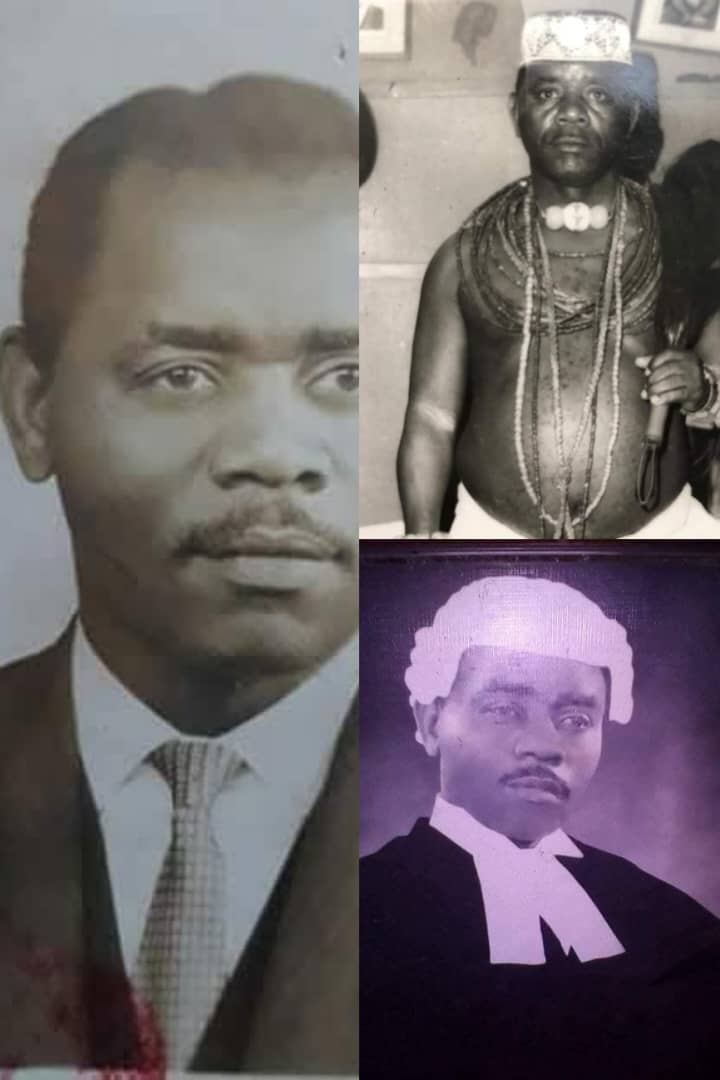
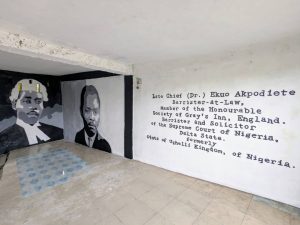
In a life of achievement, Chief Ekuogbe Akpodiete popularly called the Duke by his contemporaries in the UK was an assessment clerk, post office clerk, a court interpreter, an educationist, a business man, a political party chieftain, a Barrister and Solicitor, a Magistrate, the Otota (the Prime Minister) of Ughelli kingdom which is the highest traditional chieftaincy office that underpin the royal office of the Ovie of Ughelli Kingdom.
He was a trail blazer, a strict disciplinarian, a lover of people, and a philantropist. He saw to it that people lived in peace and happiness.
Born on the 4th of April, 1924, to parents cut from an industrious mould, Chief Ekuogbe Rowland Gregory Akpodiete took zealously to education that neither his mother Ughweriaka who was a trader, nor his father Akpodiete who was a farmer had.
He attended the Native Authority Primary School, Ughelli, and Enitona High School, Port Harcourt, for his secondary school education.
He thereafter had a brief teaching career in primary schools in Ofuoma near Ughelli, he worked as a process clerk in the then Sapele Township Department between 1950 and 1953, serving at the same time as an interpreter in the local courts.
He proceeded to the United Kingdom to seek the proverbial Golden Fleece where he worked and paid his way through, studying Law. He was admitted into the Honourable society of Gray’s Inn, England, in 1965, and shortly after, he returned home to Nigeria and attended the Nigerian Law School. He was called to the Nigerian Bar in 1966. He immediately started practice in Lagos. However, his practice in Lagos was regrettably abridged by the Nigerian Civil War, which drove him to his hometown Ughelli in 1967, where he continued to practise among his kith and kin as the first Legal Practitioner.
Chief Ekuogbe Akpodiete established himself in Ughelli. After the civil war, he served in the now defunct Mid-western State Judiciary from 1972 to 1975 as a Magistrate.
He was conferred with the chieftaincy title of Urhukperovie of Ughelli kingdom (the light of the King) by the then reigning Ovie of Ughelli, His Royal Highness Oharisi II of blessed memory in 1977.
In the quest for more knowledge, he went back to England for his Master’s degree in law (LL.M) and later a Ph.D. at the University of Warwick.
He was awarded an honourary doctorate degree (Ph.D) by Tenesse Christian University from the United States of America in 1991.
He became the Otota (the Prime Minister) of Ughelli Kingdom in 1986, an office he occupied until his demise on 9th April 1995.
Chief Ekuogbe Akpodiete was also politically involved. In the heady days of the Awolowo-led Unity Party of Nigeria, he was the party’s legal adviser in Ughelli and was on hand to assist during Chief Obafemi Awolowo’s campaign hosting in Ughelli and its environs.
In view of his love for people and entertainment, he established a popular cinema house, one of the first in Ughelli, known as REGA cinema, coined from his names, alongside an entertainment place called Unutakunu (people talk to people).
Chief Ekuogbe Akpodiete was blessed with wives and many children, grandchildren, and great grand children.
Mr. Olotu Akpodiete, PhD
Executive Director
Olotu & Ekuogbe Rowland Akpodiete foundation
-
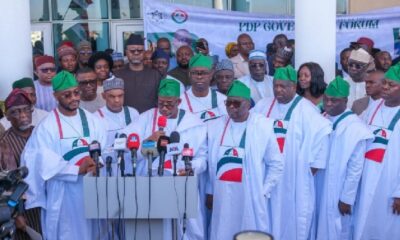
 News20 hours ago
News20 hours agoPDP governors declare support for Tinubu
-

 News23 hours ago
News23 hours agoEx-finance minister rearrested in new fraud probe
-
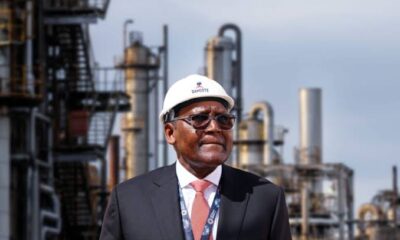
 News21 hours ago
News21 hours agoHope for Nigerians as Dangote refinery slashes petrol price again
-
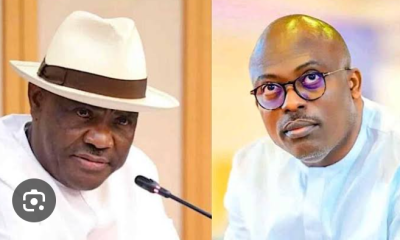
 News23 hours ago
News23 hours agoFubara: How can I forgive somebody who never requested for it– Wike
-

 News21 hours ago
News21 hours agoRivers Emergency Rule: Abbas inaugurates 21-member panel
-
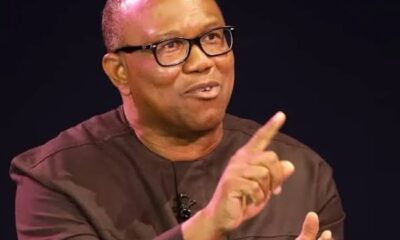
 News22 hours ago
News22 hours agoPeter Obi asks president Tinubu to suspend France trip
-

 News20 hours ago
News20 hours agoN1.3trn CBEX Scam: EFCC caution Nigerians against Ponzi Schemes
-

 News7 hours ago
News7 hours agoFG expresses sympathy for CBEX victims, urges a united effort to combat Ponzi schemes





